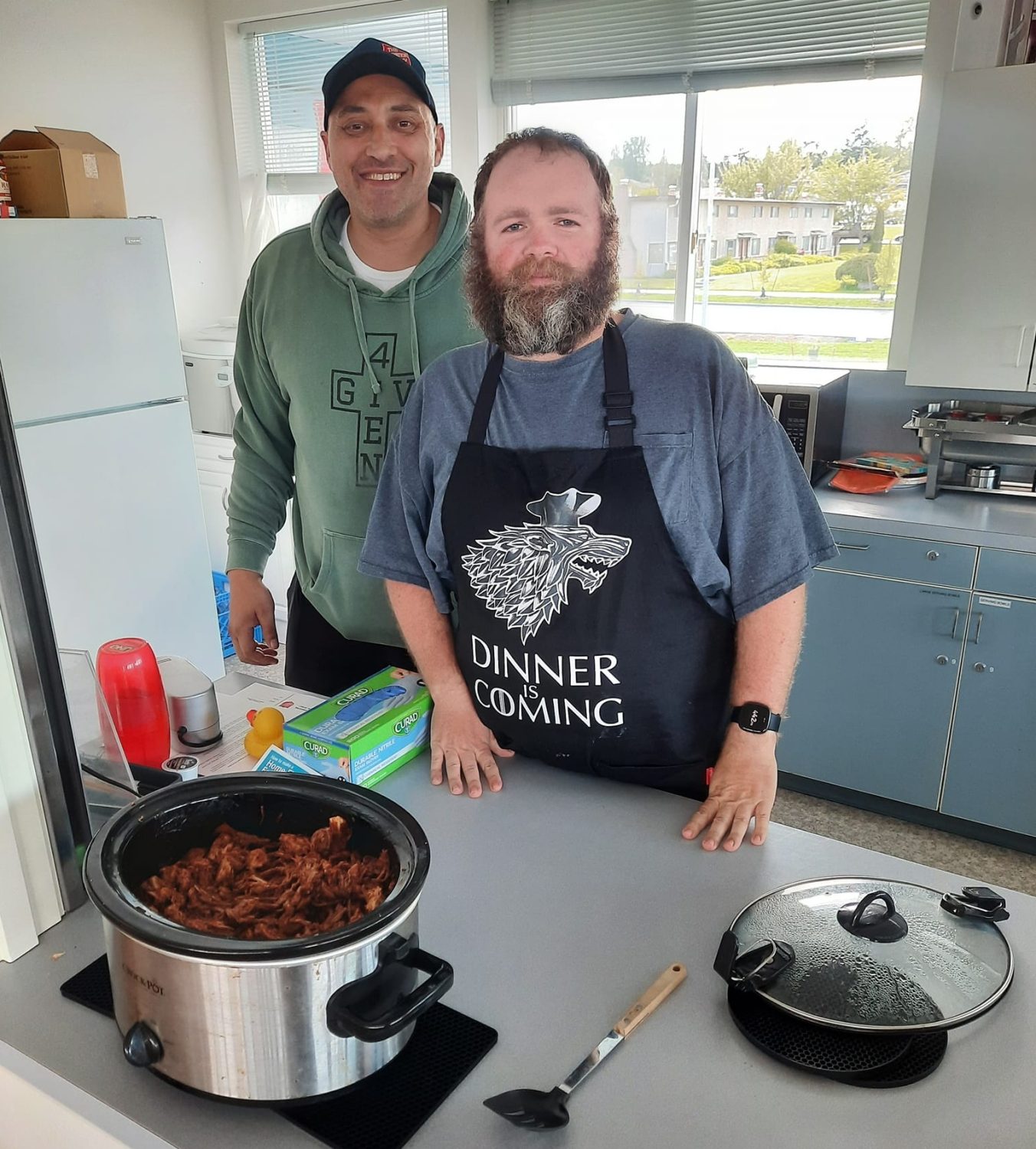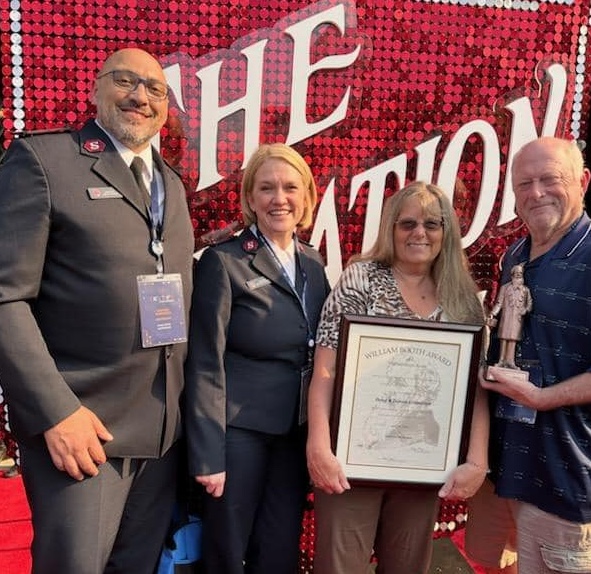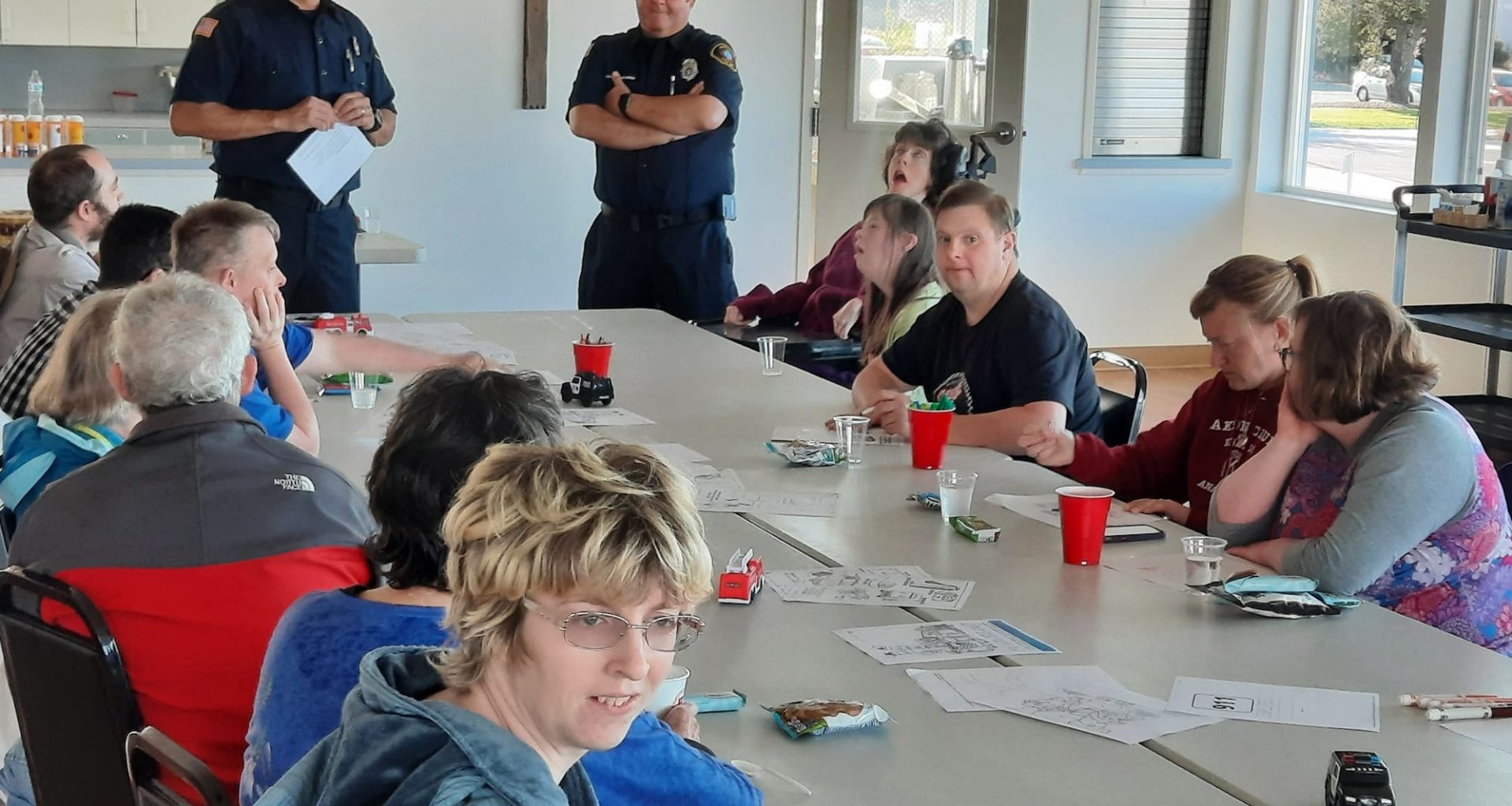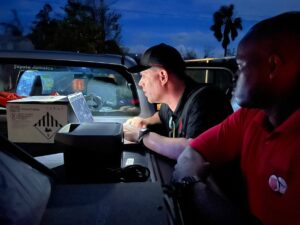After witnessing young adults with disabilities come together for the second Adaptive Retreat in Rancho Palos Verdes, California, Anacortes (Washington) Corps Officers Lts. Brett and LaShan Harrison said they felt called to create a similar environment at their corps.
“We took three delegates to the retreat,” Lt. Brett Harrison said. “We realized that the adults with intellectual disabilities in Anacortes would really thrive in an inclusive space.”
Harrison said Anacortes is a small town with a population of around 18,000. “There’s a large population of adults with intellectual disabilities but not a lot of resources or things just for them to do,” she said.
The corps partnered with Cascadia Clubhouse, a nonprofit supporting adults with developmental disabilities. Together, they host a weekly respite center offering drop-in, unstructured free time. Participants can attend independently on Fridays throughout the day, without needing a caretaker or parent present.

Harrison said the halls fill with laughter during respite center times as participants enjoy games of bingo, karaoke and the occasional dance party.
For a more structured environment, the monthly Life Skills Club provides a space for around 20 participants to engage in group lessons and activities, tackling topics such as food preparation, emergency planning, self-care and hygiene, and personal finance.
According to Harrison, the increased inclusivity at the corps aims to enrich the lives of adults with intellectual disabilities and promote independence and confidence through skills development and choice-making.
“It’s been very well received,” Harrison said. “As parents and caretakers age, they often scramble to make arrangements and plans for group homes. By practicing these skills, some individuals could possibly live independently.”
The Life Skills Club sessions are designed to help attendees build specific skills for everyday tasks. For example, local police officers have joined sessions, guiding attendees in understanding what qualifies as an emergency and when to dial 911.
“There are just certain life skills that some need explained differently or repeated,” said Donna Erlandson, Anacortes Corps Advisory Board Chair, who assists in developing and implementing ministries for adults with intellectual disabilities.
“They may miss a certain window of learning and then these topics just aren’t taught anymore,” Erlandson said. “We’re giving them that opportunity and making sure they have fun with it.”
She said one of the most valuable skills participants have learned is how to use a microwave to prepare meals such as macaroni and cheese or scrambled eggs.
“It’s just showing them they’re cared about members of our community,” Erlandson said. “We’re here to help them, love them and show them how important they are and what they’re capable of.”

Erlandson supports participants with transportation to and from the corps and helps reinforce their learning. In recognition of her dedication, Erlandson and her husband, Dough Erlandson, received The Salvation Army William Booth Award in June for their support of those with disabilities in Anacortes.
“My daughter has a disability,” Erlandson said. “When she was a child, we didn’t know what to do or what resources were available, so we navigated that journey alone and learned a lot. Now, I support others wherever they are on that journey.”
Erlandson said that the arrival of the Harrisons in Anacortes has led to increased inclusion in the lives of those with disabilities.
“We’re seeing people come out of their shell, talk more and become engaged at the corps,” Erlandson said. “It’s the result of having a space for them.”
Participant James Walker told the Harrisons he grew up feeling as though he didn’t have a place in the church.
“When he came here we just started inviting him to men’s group and church and that’s really all it took,” Harrison said. “Now, he comes every Sunday, goes to men’s group and participates in our disability programs. He’s become a huge part of our church.”
Brooks Smith, who lives with an intellectual and developmental disability, participates in music and worship, joining LaShan Harrison on the drums one Sunday a month.
“We don’t care if it sounds offbeat,” Harrison said. “It just brings him so much joy and excitement. It’s so easy to be inclusive and to open your heart to people who have felt excluded for a long time.”
The corps has also appointed a young man with Down syndrome as a Sign-Language Worship Leader. He signs worship songs on the last Sunday of every month, enhancing service accessibility.
“It’s not work; it’s just inclusion,” Erlandson said. “It’s a matter of making sure individuals with disabilities are welcomed into our community with open arms and given opportunities to contribute and thrive.”
Do Good:
- It’s because of people like you The Salvation Army can serve more than 24 million Americans in need each year. Your gift helps fight for good all year in your community. It’s an effort to build well-being for all of us, so together we rise—and that good starts with you. Give to spread hope with a donation of funds, goods or time today.












